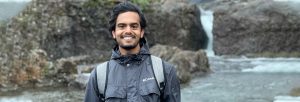(August 15, 2023) He was a curious child, who once took apart his family’s landline phone to see how it worked. While other parents might have scolded – or even grounded – their kid, Arjun Menta’s parents cheered on his inquisitiveness by giving him Lego sets and science kits, allowing him to carry on with his own experiments. And it paid off. The young researcher, whose works have appeared in many reputable journals, including IEEE, Surgical Clinics, Chemistry of Materials, and Molecular Cancer Therapeutics, recently won the prestigious Paul & Daisy Soros Fellowship for New American.
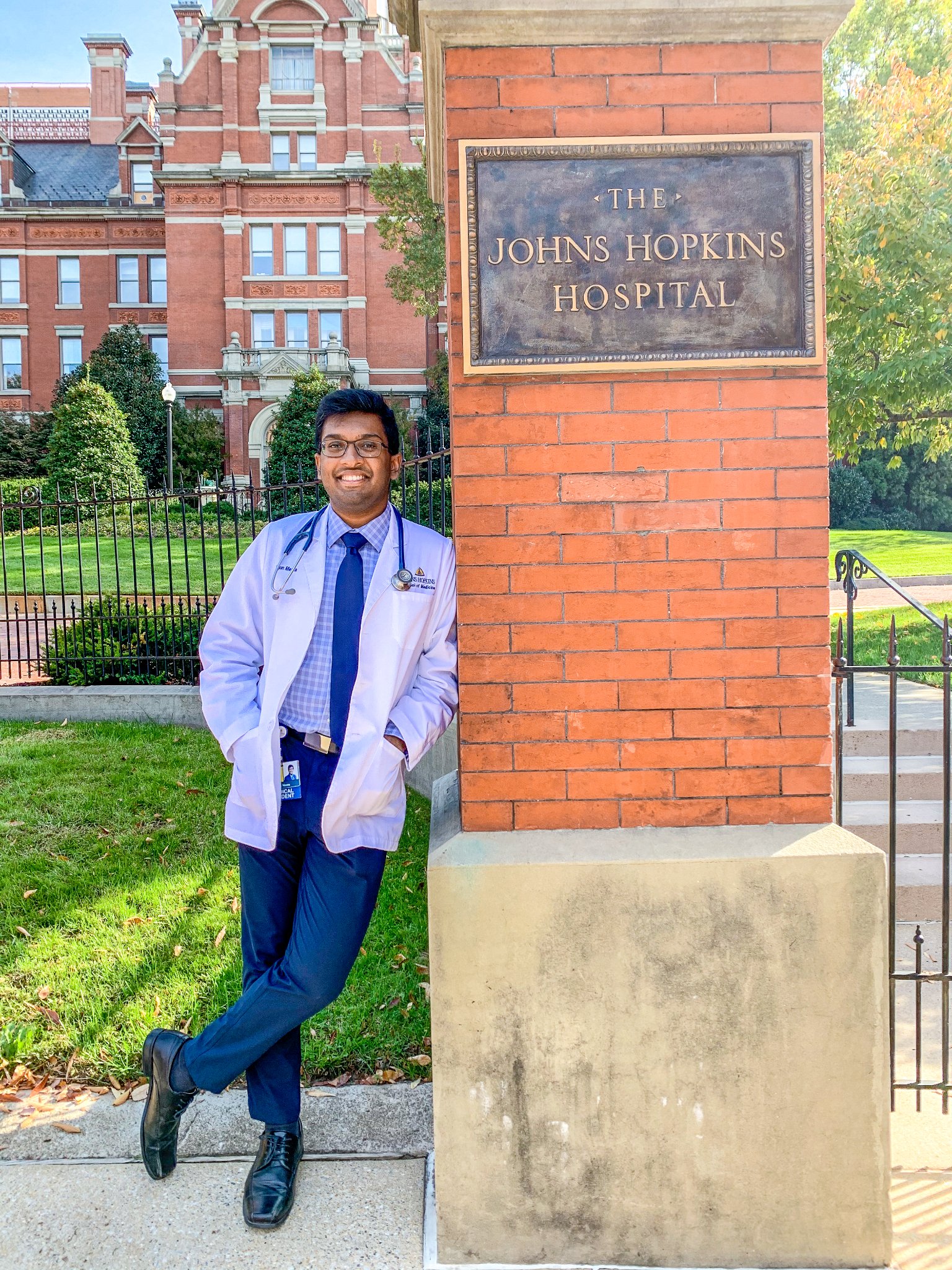
Arjun Menta is studying for an MD degree at The Johns Hopkins University School of Medicine
A prolific researcher, who holds multiple patents for his innovations, Arjun is definitely transforming laboratory discoveries into far-reaching solutions that can impact the lives of thousands across the globe. “Most of my ideas just come from observing people around me and understanding their needs,” says that young researcher as he connects with Global Indian over a call from Baltimore, right before getting ready to start a hectic day. “There are so many problems that the world is facing that need to be solved, and I intend to do my bit. As someone who is in the field of medicine, just visiting the patients and interacting with them about the difficulties, gives me an insight into what kind of innovations can help them and others.”
Currently, the young researcher is studying for an MD degree at The Johns Hopkins University School of Medicine. Alongside his medical training, Arjun is also the lead of various research and business projects. He’s working closely with leading neurosurgical doctors who are also innovators, like Nicholas Theodore (through the HEPIUS Innovation Lab), Fernando Gonzalez, and Jordan Amadio. Their goal is to make the current medical methods better.
Inspired by his parents
“My parents were both immigrants from India – my father is from Tamil Nadu and my mother from Andhra Pradesh. My dad first immigrated to New York and then he ended up moving to Dallas, Texas. My mom joined him afterward. I and my brother don’t get to visit India as much, however, we have always felt a connection with the land. My parents worked very hard and made several sacrifices to get me to where I am today. So, all the credit for my achievements goes to them.”
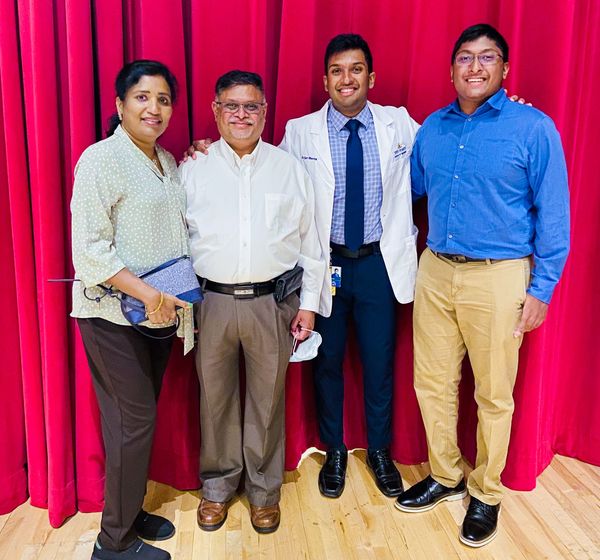

The Mentas
The young researcher shares that his parents nurtured an environment filled with determination, a hunger for science, and a deep sense of helping others. Being engineers, they would often come up with fun experiments for him and his younger brother using things found around the house. They’d make invisible ink from lemon juice and encouraged them to ask lots of questions, which really inspired the way Arjun thinks even now that he’s all grown up.
“Growing up years were a little tough, especially in the beginning. I wasn’t in the best school system in this area, however, the most important thing was that my parents really did their best to allow me to learn. They would take us to the museums, libraries, and zoological parks. My dad would sit with us and teach us even after a long working day. Interestingly, he didn’t just teach me and my brother, but some other kids in the neighbourhood as well. That was something that has stayed with me till today. So, whenever I get a chance to give back to my community, I never miss out on that,” says the researcher, who would attend Chinmaya Mission’s Bala Vihar‘s Sunday classes, and even volunteered there as well.
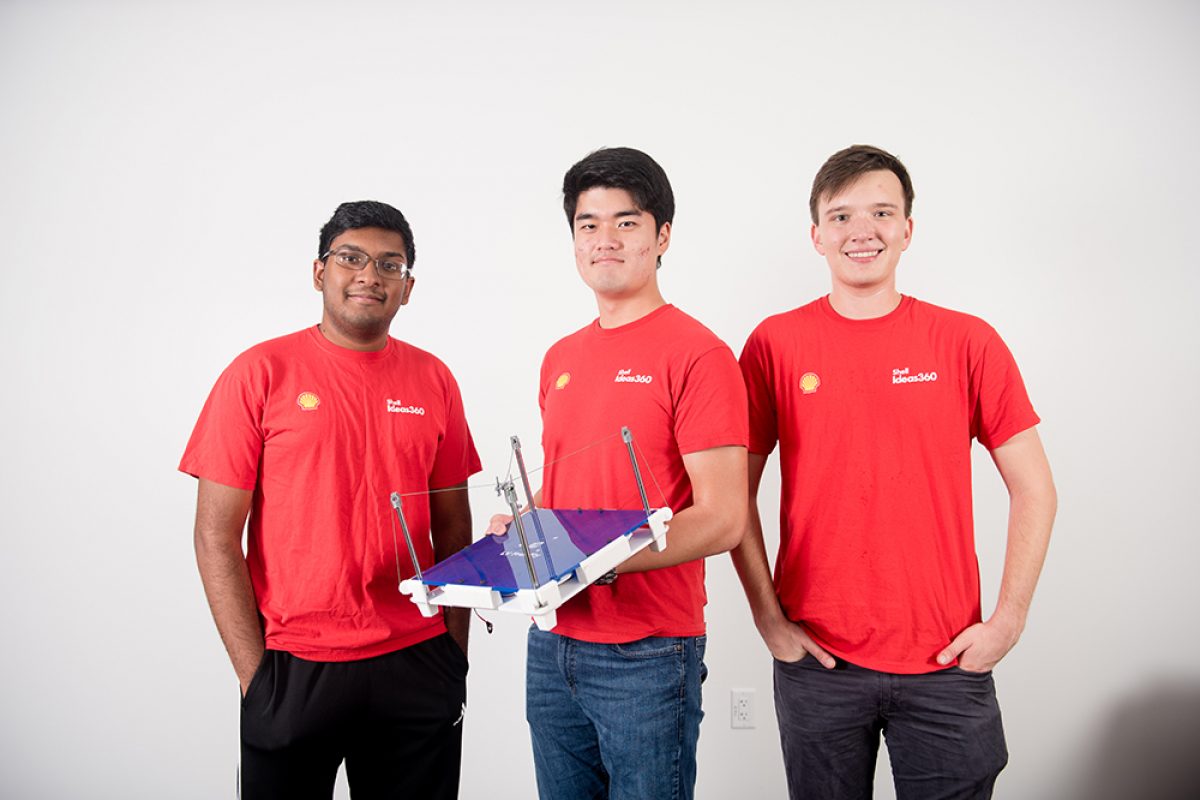

Arjun with his FruitByte team, which was the 2018 grand finalist in the Shell Ideas360 competition in London
He might have many patents to his name today, however pursuing a career in medicine or the healthcare industry was never Arjun’s first plan. “While I was in school, I was so inspired by my parents. So, the plan back then was to study engineering. It was only later in college that I got exposure to medicine and also a lot of really unique things we can do to help people and improve the healthcare system,” shares the researcher, who earned a Bachelor of Science and Arts in biochemistry from The University of Texas at Austin, in the year 2020.
The world of healthcare
It was during his time at the University that this young researcher met a mentor named Anjan Panneer Selvam. With Anjan’s guidance, Arjun got a firsthand look at the wonders and difficulties of modern medicine. His initial research work happened in this lab, where he worked on making a biosensor that can detect cancer early and be used at the point of care.
Passionate and driven, the youngster established several enterprises, including FruitByte, a creative farming analysis and automation platform, and Vaxcube, a patent-pending, power-efficient thermoelectric system designed for portable cooling technology, aimed at improving worldwide access to vaccines and medical supplies. Interestingly, Vaxcube gained special recognition as a health finalist in the 2017 National Geographic Chasing Genius competition. It secured funding not only from the Genesis Austin startup foundation but also through various international health grants.
The researcher is also one of the founders of the e-NABLE chapter at UT Austin, a student group that leverages 3D printing facilities at UT to create custom prosthetics for local amputees. This initiative aims to ease the financial and practical challenges that amputees and their families face. Sharing his experience at e-NABLE, the researcher says, “We connect with amputees, closely examine their situations, truly grasp the challenges, and then work towards crafting a solution that directly addresses those issues. In the end, this experience has taught me valuable lessons about leading teams with different backgrounds, aiding others, and considering not only the scientific aspect but also the well-being of the patients. These insights continue to shape my journey in everything I undertake.”
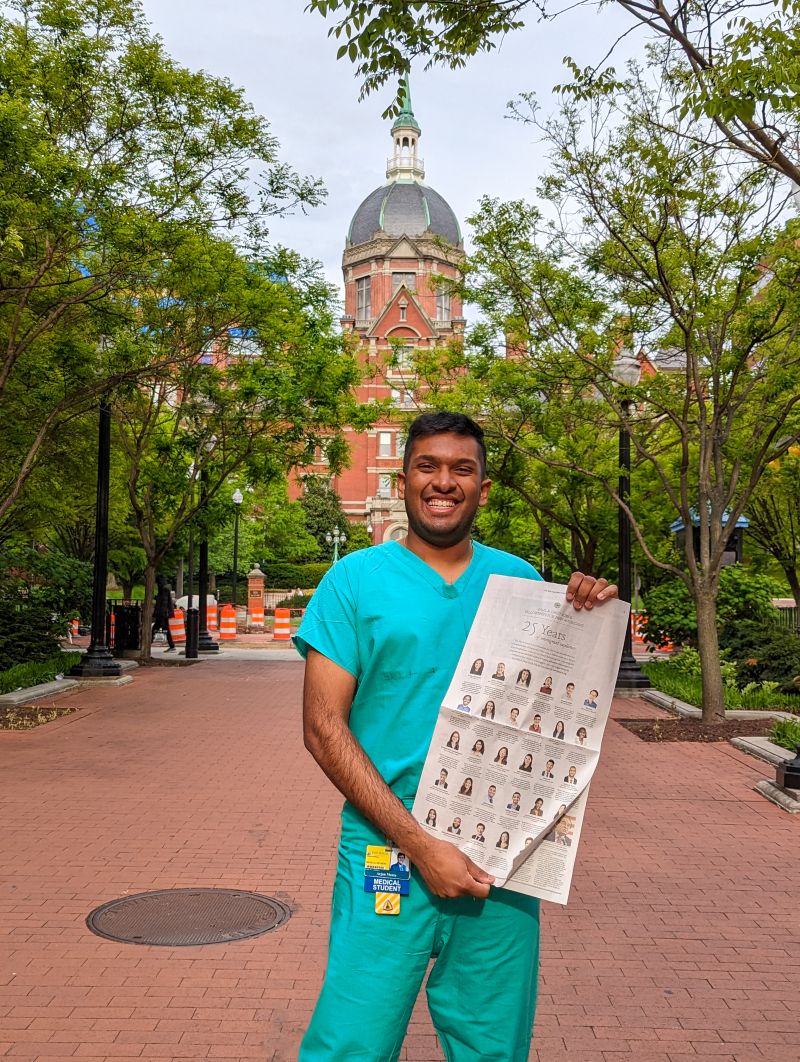

Arjun recently won the prestigious Paul & Daisy Soros Fellowship for New American
Arjun’s keen intrigue in turning laboratory breakthroughs into solutions that reach far and wide, affecting the lives of many, ignited his passion for innovation. The researcher’s been involved in reimagining cooling systems to make vaccines accessible worldwide, creating advanced agricultural tech to boost crop production, and inventing smart medical drains for better post-surgery results. “In parallel to my medical degree, my interest at the moment is more towards the subject of neurosurgery. I am very privileged to be working under some very brilliant minds, and intend to make the most of it,” says the researcher.
- Follow Arjun Menta on LinkedIn




